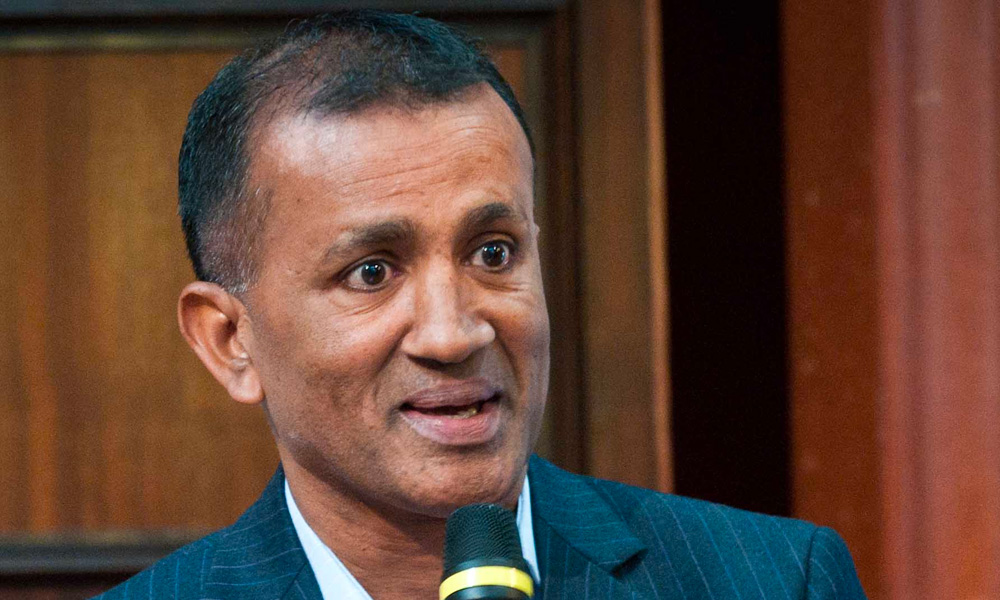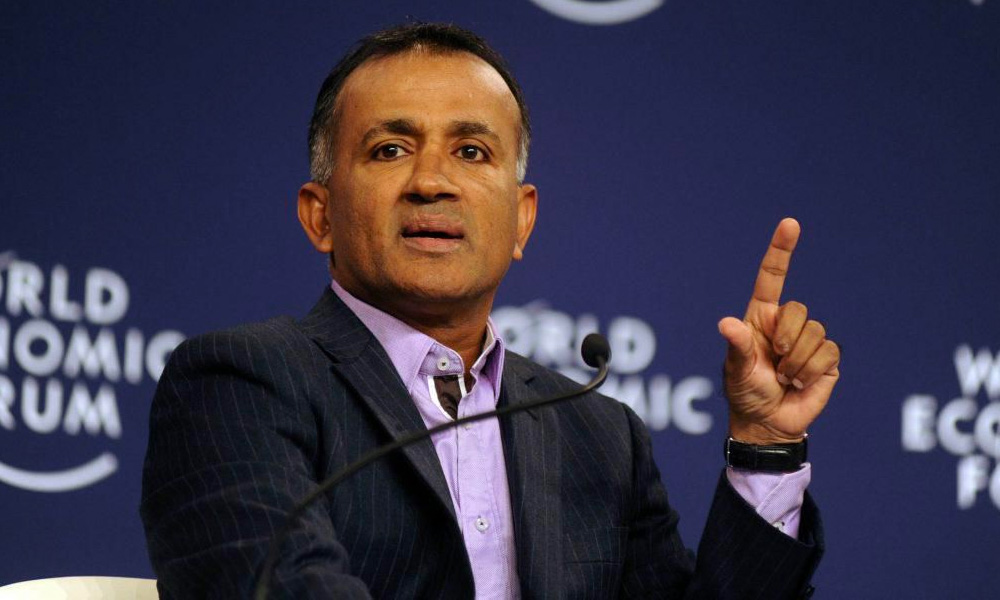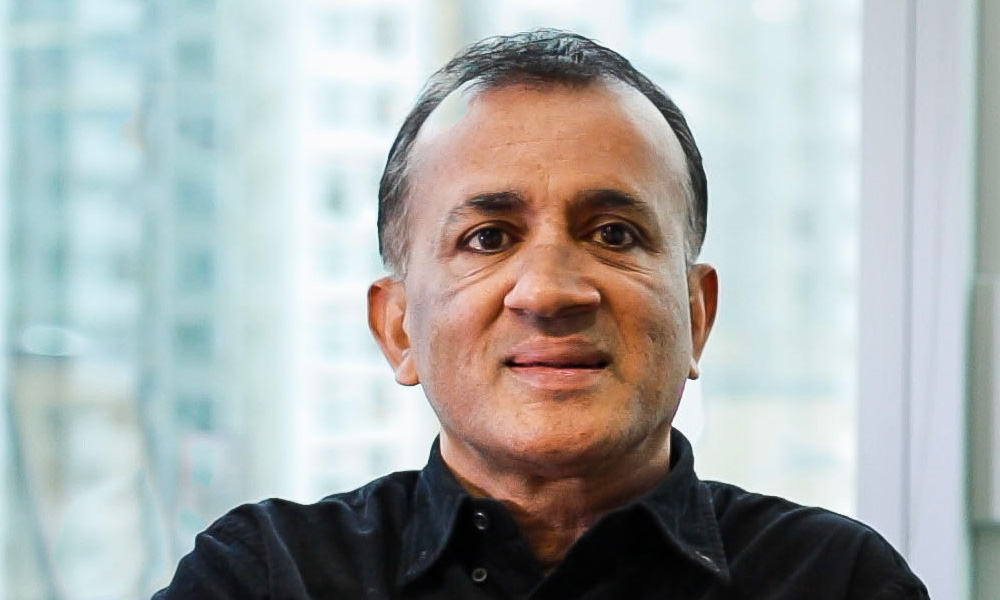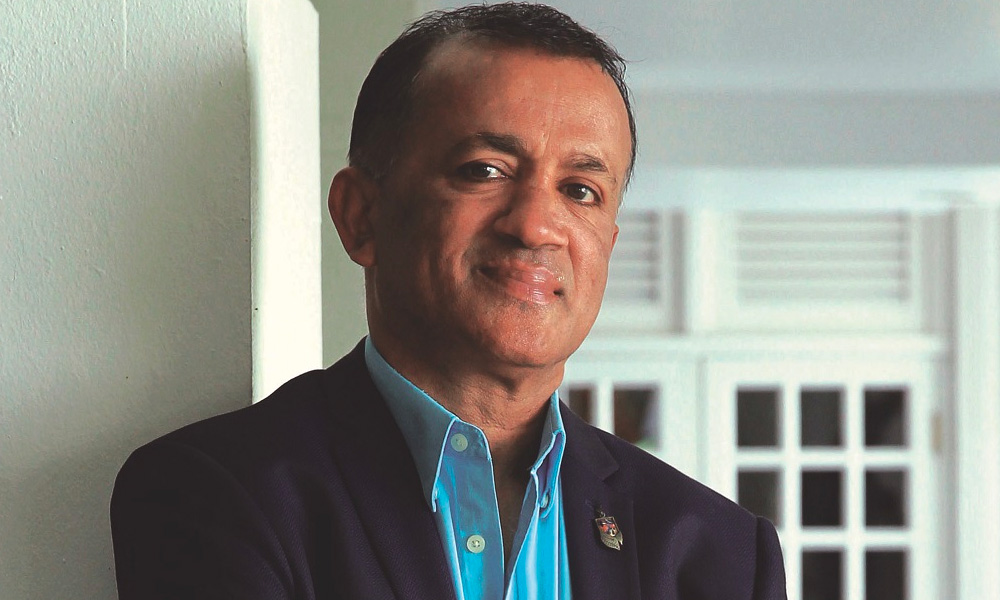INTERVIEW | Born and raised in Kuala Lumpur where he shared a room with seven of his siblings, Chandran Nair later found himself involved in the fight against unjust segregationist policies in South Africa and organising safe houses for those involved in the anti-apartheid movement.
Reminiscing on his involvement then with the African National Congress (ANC), the businessperson, think-tank founder and author quipped that he would be considered a “terrorist” under the present American definition.
Chandran, who resides alternately in Hong Kong and Kuala Lumpur, has now embarked on a new mission. This time, much closer to home. He is seeking to help undo institutional racism in Malaysia.
With this objective in mind, he decided to air his views on the taboo subject in a talk show on Astro Awani that, to his astonishment, generated waves. Since then, he has been inundated with requests to do more.
In a telephone interview with Malaysiakini, Chandran shared his thoughts on the overwhelming response and his plan to set up the Malaysian Anti-Racism Institute (MARI).
The founder of the Global Institute for Tomorrow was bemused to learn that some people even considered him to be a knight in shining armour.
“The first message it sent to me was that people are craving for a positive conversation around this issue, something not couched in the usual language of negativity, divisiveness and toxic politics.

“The second thing that struck me was how scared people were and thought that I was some kind of superhero, which I am not, for having said it,” he added.
'They thrive on our subservience'
Citing that fear prevented many from raising the issue, Chandran said Malay politicians and those in positions of power use racism while perpetuating and exploiting the divisiveness it creates for their self-interest.
The absence of remonstration, he added, allows them to build institutional racism.
He was also quick to point out that this does not mean that the elites from the other races do not exploit this system for their own good.
“Do the people running the country on this racist platform, who are dividing the nation, taking it down, thrive on our subservience? Are we actually culpable by our silence?” he asked.
When suggested that critics would point out that he does not have to fear repercussions since he is based thousands of kilometres away from Putrajaya, which has exhibited little tolerance for dissent, Chandran disagreed.
He said that such perceptions or accusations are often used as an excuse for inaction by others who are concerned but fearful of reprisals.
“Our lives take us in numerous directions. Mine has been one that took me to different parts of the world and I am privileged in that regard, but I have never shied from trying to contribute in a small way to Malaysia.
“Needless to say, there are many in Malaysia with more safety nets than I have, who have never said anything or done much to fight the racial injustice. Maybe because their safety nets were woven into the fabric of our racist system and it would be inconvenient for them to do so,” he added.

Furthermore, Chandran said he did not flee Malaysia following his hard-hitting television interview.
“I did not say this on a foreign TV channel speaking to a foreign journalist whilst based overseas. I spoke on Malaysian TV whilst in Kuala Lumpur. I did not leave the country the next day.
“I think we overstate the threats and fears. I am not fighting anyone or any political party. The point is MARI is apolitical and focused on national unity. In fact, it is very much in line with the objectives of the government to foster unity across the races,” he stressed.
Chandran believes that there is nothing to fear if the message is positive and aims to bring people together to support a common cause for the betterment of the nation.
“I am not doing this to make enemies or seek any political office but to help the majority reverse injustice and help the country fulfil its wonderful potential. Institutional racism is our Achilles heel and it is time we get honest and act to dismantle it.
“Those who are architects of this system and the major beneficiaries of these injustices are the minority and can be disarmed. Being fearful of the imagined threats they can unleash is a form of resignation to perpetual decline.
“If I am to take these suggestions about me living abroad at face value, then I would say that I may live in Hong Kong for now but I have assets in Kuala Lumpur, including my company.
“So geography is no protection. I still have more to lose than most but I do not believe that I am threatened by what I am saying or doing. I am not in politics and not being subversive,” he added.
Dr M missed a golden opportunity
Elaborating on his association with the ANC, Chandran revealed that he interviewed Oliver Tambo, the late Nelson Mandela's second-in-command, for the New Straits Times in 1986 when he was in Kuala Lumpur to receive an award from then-prime minister Dr Mahathir Mohamad.

He termed Mahathir's presentation of the award to Tambo as “rather ironic” and when prodded on this description, rued that Mahathir failed to move beyond race during the height of his power.
“I think that was a failure of leadership. There was a golden opportunity then when we still had sound institutions and racism had not become entrenched in the system,” he added.
Conceding that Mahathir is an astute political leader who made immense contributions to the country, Chandran, however, noted that Mahathir did not have the foresight to see that racism is cancer and was not able to put in place policies to steer the nation clear of racial divisions.
He pointed out that affirmative action at the time to help the majority, comprising poor Malays, did not have to be done with polarising racial policies which were then politically weaponised.
“Imagine a Malaysia which was not run along racial lines. I think Malaysia would be an economic power on the scale of Korea or Japan, and most importantly, no longer one that is still economically divided along racial lines.
“Given the resources we have, imagine, 33 million people, a country blessed with an array of natural resources. One of the few countries in the region which is not overpopulated, no volcanoes, tsunamis or earthquakes... we would be a powerhouse
“I think Mahathir had a grand economic vision built around meeting traditional neo-liberal growth targets, but it was a narrow vision steeped in racial policies as he wanted to uplift the disenfranchised poor Malays at the same time.
“It worked only to a certain extent and then the rot set into the system as it always does if you play the race card. He did not understand the need to build a national identity for all citizens to buy into and be proud of,” he added.
On Mahathir still viewing the nation through a racial monocle, Chandran replied: “He is old now and did try to help in the last election but then it all went wrong and people are tired, given that their hopes have been dashed.
“The fact that the people still think we should ask men over 80 or 70 to pontificate about the future is a tragedy of the political landscape in Malaysia. It is a total tragedy,” he added.

According to Chandran, none of the political leaders appears to have a clear vision for Malaysia at a time when people are desperate for leadership and direction due to the Covid-19 pandemic.
“Thus the same old suspects are still playing musical chairs and part of that is due to the patronage system within the Malay culture. It is not in the other cultures but it has become part of the culture in Malaysia and many have simply become subservient.
“There is great merit in respecting older, wiser people, but not if they are no longer able to contribute or if they are getting in the way of progress. Where are the younger future leaders and can the country draw on the next generation from all races, please?” he added.
In Chandran's opinion, there appears to be a lack of understanding about the importance of creating a national identity in Malaysia and this is a major impediment.
“In fact, the architects of racism have worked actively to impede the creation of national identity with their shameful race-based ideologies.
“The challenge is to build a multicultural society with a single identity, without race being used to define citizenship. That is the leadership the country needs and deserves at this critical juncture. We have fallen behind but we can come back from the brink.
“I think we are the only country in the world where there is affirmative action for the majority and it is wholly race-based. Usually, affirmative action is for the minorities,” he pointed out. - Mkini



No comments:
Post a Comment
Note: Only a member of this blog may post a comment.